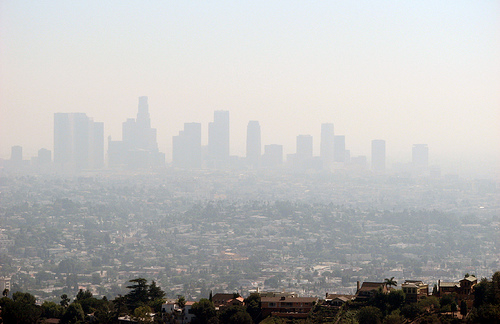 I want to thank everyone for the thoughtful discussion that’s taken place around the term “climate hawk,” on Grist and elsewhere. I’m going to round up some reactions, offer one or two more thoughts, and then explain why my fondest hope is for this discussion to end and for simple usage to begin.
I want to thank everyone for the thoughtful discussion that’s taken place around the term “climate hawk,” on Grist and elsewhere. I’m going to round up some reactions, offer one or two more thoughts, and then explain why my fondest hope is for this discussion to end and for simple usage to begin.
First a roundup. A post soliciting ideas kicked things off, then a post introducing the term appeared on Grist, Huffington Post, Mother Jones, and ClimateProgress — there are interesting conversations going on in every one of those threads. Joe Romm wins first place for reprinting the post, explaining the term, and endorsing it all at once. Andrew Leonard at Salon had kind words, as did Milan, Chris Oestereich, and RL Miller. There was also an amusing-if-brief Twitter flurry and a new Twitter account, @climatehawks. (Who is that, anyway?)
The most insightful commentary came from science blogger John Rennie, who expanded my understanding of the term here and here. He also left some great comments on the initial posts. I’d link to them — to a lot of great comments on that thread — if Grist’s *%$!ing content software would let me.
Not everyone’s on board. The Way Things Break doesn’t like the term; he/she thinks “hawk” is associated with empty bluster and incompetence. (I’d say that’s true for a fairly small subset of people.) Keith Kloor faults me for putting climate rather than energy at the center. (That’s a feature, not a bug.) Over at the American Enterprise Institute, conservative Ken Green engages in some predictable mau-mauing, but even in the course of invoking Al Gore for the billionth time he manages to illustrate the utility of the term:
Now, I’m sure that since Dave knows that the opposite of a “hawk” in such a context is a “dove,” he’ll take to calling those who oppose his policy desires “climate doves,” right? I like the sound of that, since that’s what I am, a climate dove. I don’t deny the reality of climate change, I just don’t believe assumption-laden computer models that are designed to project Climageddon, and I don’t believe we need to reinvent humanity to prevent the Climapocalypse.
Exactly. The hawk/dove distinction — on climate as on foreign policy or the deficit — is about more than facts. It’s about risk assessment. How serious is the threat and how strong a response is warranted? Answering those questions goes beyond facts into economic, ethical, and policy judgments. It’s not about what to believe, it’s about what to do.
Green is a climate dove: he doesn’t think what we currently know about climate change warrants a robust public policy response. He is hawkish on foreign policy, hawkish on the deficit, and dovish on climate change. I am the opposite — dovish on military affairs and the deficit, hawkish on climate. These terms do useful descriptive and analytic work.
“Climate hawk” isn’t supposed to draw attention to itself. It’s supposed to fill a linguistic lacuna. If it’s adopted at all it will be for one reason: it comes in handy. That’s why I don’t plan to write any more posts about it. Instead I’m just going to use it. The faster the term loses its association with me, loses its scare quotes, and slips into the vernacular, the better. So just use it!




